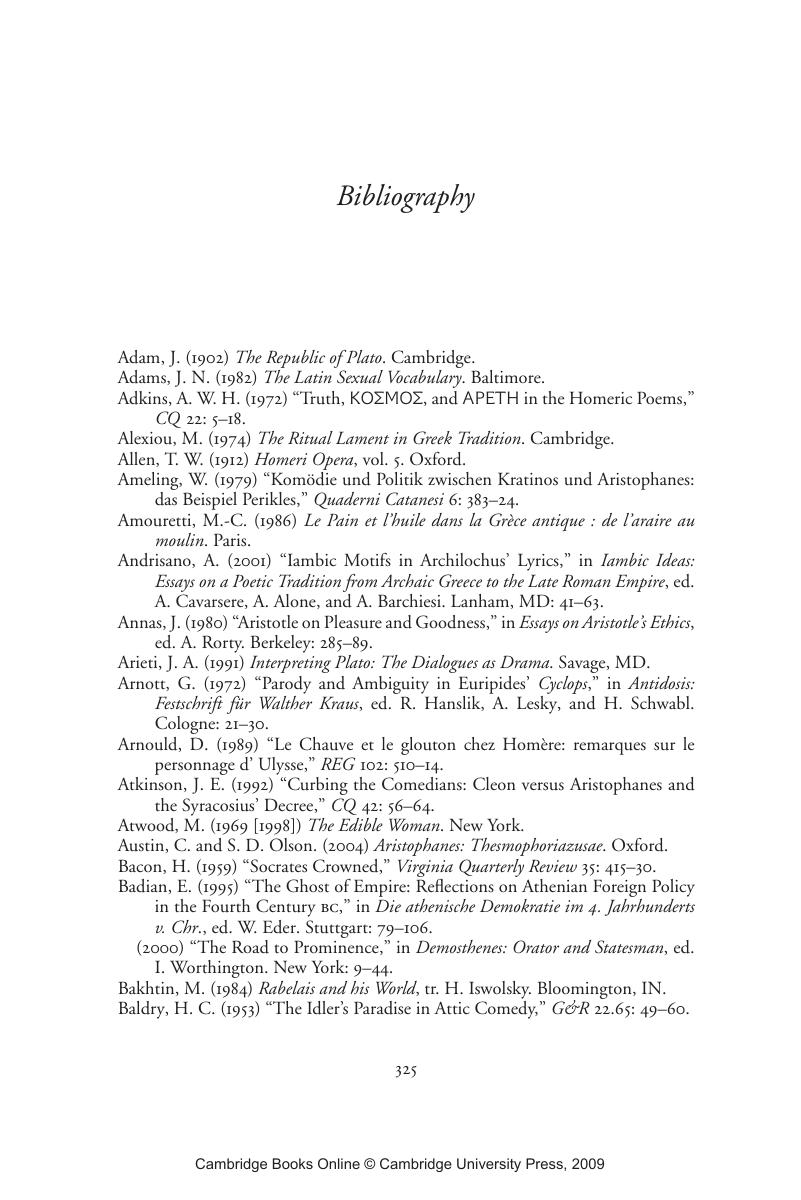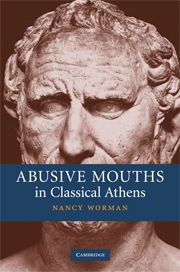Book contents
- Frontmatter
- Contents
- Acknowledgments
- List of abbreviations
- Introduction
- 1 The mouth and its abuses in epic, lyric, and tragedy
- 2 Open mouths and abusive talk in Aristophanes
- 3 Gluttonous speechifying in Euripides' Cyclops
- 4 Crude talk and fancy fare in Plato
- 5 Defamation and oral excesses in Aeschines and Demosthenes
- 6 The intemperate mouth in Aristotle and Theophrastus
- Epilogue
- Bibliography
- Index locorum
- General index
- References
Bibliography
Published online by Cambridge University Press: 08 March 2010
- Frontmatter
- Contents
- Acknowledgments
- List of abbreviations
- Introduction
- 1 The mouth and its abuses in epic, lyric, and tragedy
- 2 Open mouths and abusive talk in Aristophanes
- 3 Gluttonous speechifying in Euripides' Cyclops
- 4 Crude talk and fancy fare in Plato
- 5 Defamation and oral excesses in Aeschines and Demosthenes
- 6 The intemperate mouth in Aristotle and Theophrastus
- Epilogue
- Bibliography
- Index locorum
- General index
- References
Summary

- Type
- Chapter
- Information
- Abusive Mouths in Classical Athens , pp. 325 - 345Publisher: Cambridge University PressPrint publication year: 2008



